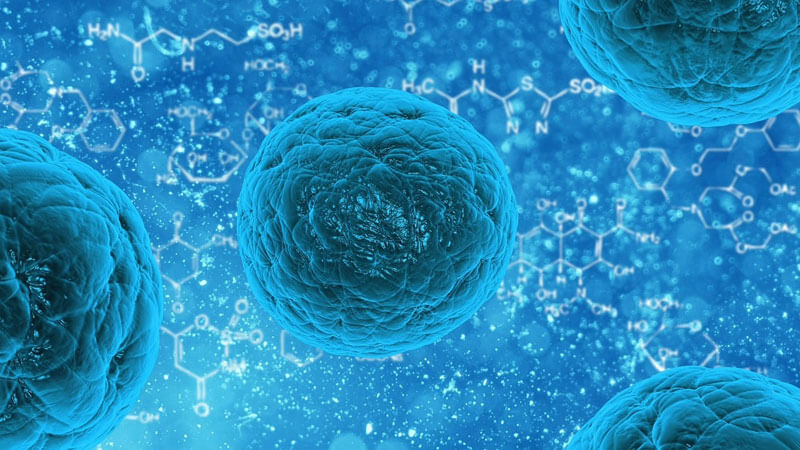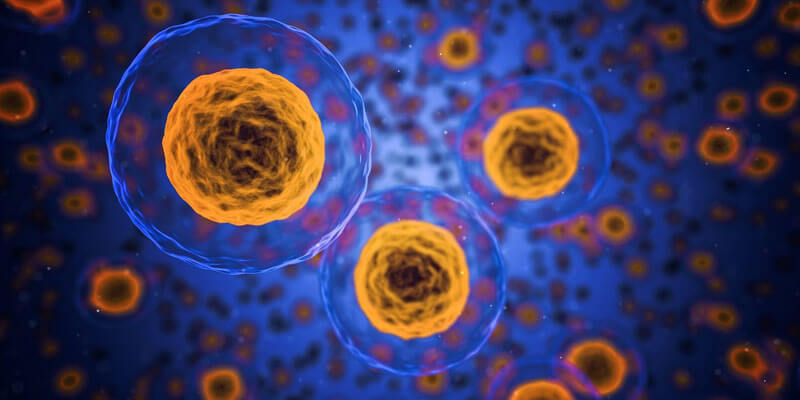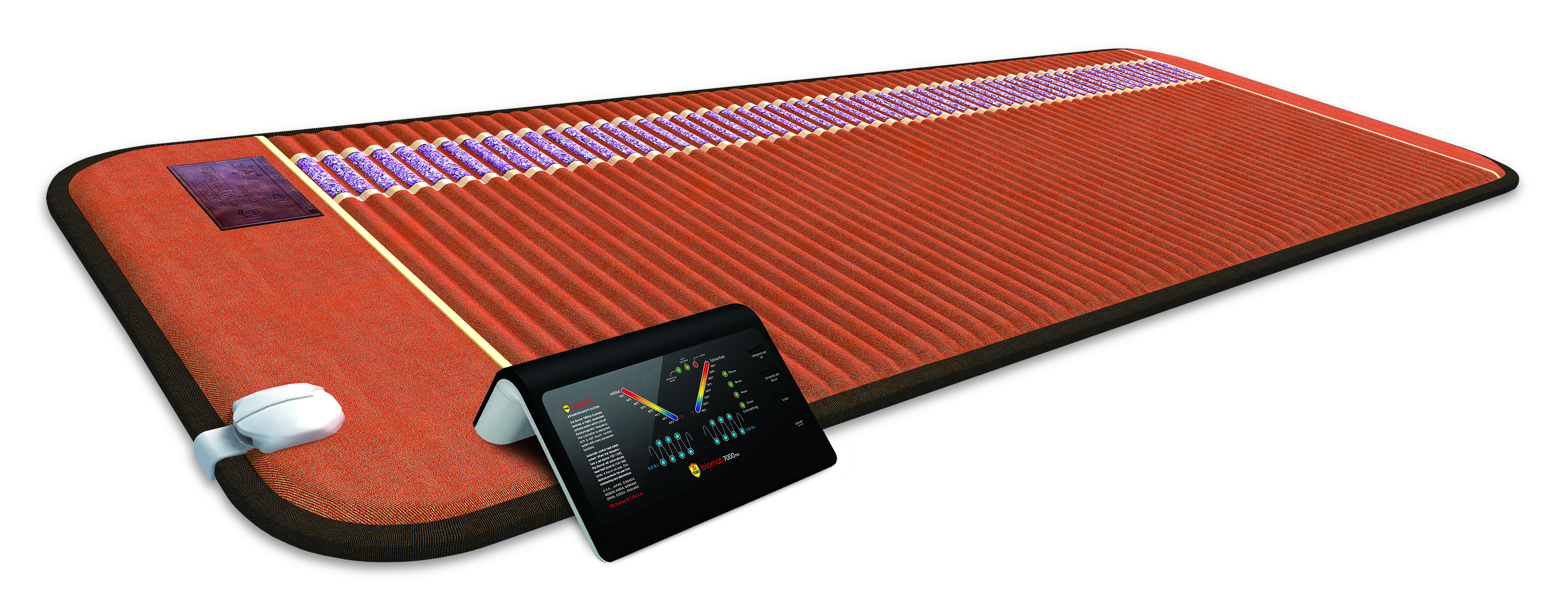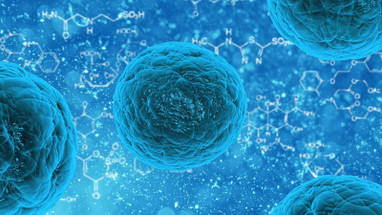Posted by Biomatstores.com on 4th Sep 2023
Boosting Your Immune System with the Richway Biomat and Heat Shock Proteins
What Are Heat Shock Proteins?
Heat shock proteins (HSPs) are a group of proteins that play a crucial role in cellular protection and stress response. They are produced by cells in response to various stressors, including heat, toxins, oxidative stress, and inflammation. HSPs help in maintaining cellular homeostasis by assisting in protein folding, preventing protein aggregation, and promoting the removal of damaged proteins. In addition to their role in cellular protection, heat shock proteins also have a significant impact on the immune system, as well as other systems in the human body.
Ways That Heat Shock Proteins Affect the Immune System
1. Heat shock proteins (HSPs) play a crucial role in the immune system by assisting in the presentation of antigens. Antigens are substances that trigger an immune response, such as foreign proteins or cancer cells. They can bind to antigens and facilitate their transport to antigen-presenting cells (APCs) such as dendritic cells, macrophages, and B cells. This process enhances the immune response by promoting the recognition of antigens by T cells.
2. HSPs can act as chaperones for immune cells, ensuring proper folding and assembly of proteins involved in immune responses. This helps maintain the integrity and functionality of immune cells, allowing them to effectively carry out their functions.
3. HSPs can modulate the activation and maturation of dendritic cells, which are crucial for initiating immune responses. They can enhance the expression of co-stimulatory molecules on dendritic cells, leading to increased T cell activation and proliferation.
4. HSPs can stimulate the production of pro-inflammatory cytokines, such as interleukin-1 (IL-1) and tumor necrosis factor-alpha (TNF-alpha). Cytokines are small proteins involved in cell signaling and immune regulation. By influencing cytokine production, HSPs can influence the balance between pro-inflammatory and anti-inflammatory responses, thereby shaping the immune response.
5. HSPs can induce the production of heat shock proteins themselves, creating a positive feedback loop that amplifies the immune response. This can enhance the overall immune defense against pathogens or abnormal cells.
6. HSPs can promote the survival and function of immune cells under stressful conditions. They help protect immune cells from damage caused by heat, oxidative stress, or other harmful factors, thereby ensuring their longevity and effectiveness in fighting infections or diseases.
7. HSPs can regulate the immune function by modulating the activity of regulatory T cells (Tregs). Tregs play a critical role in maintaining immune homeostasis and preventing excessive immune reactions. HSPs can influence the differentiation and function of Tregs, contributing to immune tolerance and preventing autoimmune diseases.
8. HSPs can act as danger signals, alerting the immune system to the presence of potential threats. When released from stressed or damaged cells, HSPs can activate immune cells and initiate immune responses against pathogens or abnormal cells.
9. HSPs can enhance the efficiency of vaccines by acting as adjuvants. They can improve the immunogenicity of antigens, leading to stronger and more durable immune responses. This property of HSPs has been utilized in the development of novel vaccine strategies.
10. HSPs can contribute to the resolution of inflammation and tissue repair. They can modulate the production of anti-inflammatory cytokines and promote tissue regeneration, aiding in the recovery process after an immune response or injury.
In a 1999 study entitled Role of Heat Shock Proteins in Protection from and Pathogenesis of Infectious Diseases, the researchers concluded that "If there is any general conclusion to be drawn today, it is that HSPs, rather than initiating anti-infectious or autoaggressive immune responses, chaperone the immune response induced by other antigens and thus both influence its strength and sustain it." In other words, though more research is needed, what we can say today for sure is that heat shock proteins help and strengthen the immune response.

Thermotherapy and Heat Shock Proteins
Thermotherapy, also known as infrared heat therapy or hyperthermia treatment, has been shown to play a significant role in the synthesis of heat shock proteins, which are a family of proteins that are produced by cells in response to various stressors, including heat. These proteins play a crucial role in protecting cells from heat and play a vital role in producing endorphins and other processes that enhance the immune system.
The process by which far-infrared therapy helps to synthesize these proteins is complex and involves several mechanisms. When the body is exposed to heat, such as through infrared heat therapy, it triggers a series of physiological responses that ultimately lead to the production of heat shock proteins.
At the cellular level, the increase in temperature activates a specific transcription factor called heat shock factor 1 (HSF1). HSF1 is responsible for regulating the expression of heat shock proteins. When the body temperature rises, HSF1 is activated and translocated from the cytoplasm to the nucleus of the cell. In the nucleus, HSF1 binds to specific DNA sequences known as heat shock elements (HSEs) located in the promoter regions of HSP genes.
Once bound to the HSEs, HSF1 recruits co-activators and other transcriptional machinery to initiate the transcription of heat shock protein genes. The transcribed mRNA is then translated into HSPs, which are subsequently synthesized and accumulate within the cell. These proteins act as molecular chaperones, assisting in the folding and stabilization of proteins, preventing protein aggregation, and promoting cell survival.
Numerous studies have investigated the relationship between heat treatments, such as far infrared therapy, and the production of heat shock proteins. One such study published in the Journal of Applied Physiology examined the effects of infrared heat on heat shock protein expression in human skeletal muscle. The researchers exposed participants' legs to infrared heat for 60 minutes and found a significant increase in the expression of these proteins, particularly HSP70 and HSP27, in the treated muscles. This study demonstrated that infrared heat therapy can stimulate the synthesis of heat shock proteins in human skeletal muscle.
Another study published in the Journal of Clinical Investigation investigated the effects of whole-body hyperthermia on heat shock protein expression in mice. The researchers exposed the mice to whole-body hyperthermia by immersing them in a warm water bath. They observed a marked increase in the expression of heat shock proteins, including HSP70 and HSP32, in multiple organs and tissues of the mice. Furthermore, they found that the induction of heat shock proteins protected the mice from various forms of cellular stress, including oxidative stress and ischemia-reperfusion injury.
These studies, along with many others, provide evidence for the relationship between raising the body temperature through thermotherapy and the synthesis of heat shock proteins. The increase in temperature activates the HSF1 transcription factor, leading to the transcription and synthesis of these proteins, which play a crucial role in protecting cells from stress-induced damage and promoting cell survival.
Thermotherapy, also known as far infrared heat therapy and hyperthermia treatment, has been shown to stimulate the synthesis of heat shock proteins. The increase in body temperature activates the HSF1 transcription factor, which regulates the expression of heat shock protein genes. The synthesis of heat shock proteins plays a vital role in protecting cells from stress-induced damage and promoting cell survival. Numerous studies have demonstrated the relationship between heat treatments and the production of heat shock proteins, further highlighting the importance of thermotherapy in maintaining cellular health and resilience.
Other Health Benefits of Heat Shock Proteins
Improved cardiovascular health
Heat shock proteins have been found to have a protective effect on the cardiovascular system, helping to prevent the development of heart disease and other cardiovascular conditions. They can help reduce inflammation and oxidative stress, improve blood vessel function, and promote overall heart health.
Enhanced brain function
Heat shock proteins play a crucial role in maintaining proper brain function and protecting against neurodegenerative diseases such as Alzheimer's and Parkinson's. They help in the clearance of abnormal protein aggregates and promote the survival of brain cells.
Increased stress tolerance
Heat shock proteins help the body adapt and respond to various stressors, including physical and environmental stress. They support the body's ability to withstand stress and maintain cellular homeostasis, reducing the negative impact of stress on overall health.
Improved muscle recovery and performance
Heat shock proteins assist in muscle repair and recovery after exercise. They help repair damaged proteins and promote muscle growth, leading to faster recovery and improved athletic performance.
Enhanced longevity
Heat shock proteins have been linked to increased lifespan and longevity. They help protect cells from damage, prevent protein misfolding, and promote cellular repair and maintenance, which can contribute to a longer and healthier life.
Reduced inflammation
Heat shock proteins have anti-inflammatory properties and can help regulate the immune response. They can reduce the production of inflammatory molecules and promote the resolution of inflammation, leading to improved overall health and a reduced risk of chronic inflammatory conditions. Reduced inflammation leads to better blood circulation as well.
Read more about how heat shock proteins and the Biomat help inflammation by reading, The Richway Biomat: A Powerful Solution for Inflammation
Improved wound healing
Heat shock proteins play a role in the wound-healing process by promoting cell migration, proliferation, and tissue regeneration. They can accelerate wound closure and improve the overall healing process.
Protection against oxidative stress
Heat shock proteins help protect cells from oxidative stress, which is caused by an imbalance between the production of reactive oxygen species and the body's antioxidant defenses. By reducing oxidative stress, heat shock proteins can help prevent cellular damage and protect against various diseases.
Enhanced detoxification
Heat shock proteins are involved in the cellular detoxification process by facilitating the removal of toxic substances and damaged proteins. They help maintain cellular integrity and promote overall detoxification and cleansing of the body.
Improved insulin sensitivity
Heat shock proteins have been found to play a role in regulating insulin sensitivity and glucose metabolism. They can help improve insulin signaling and reduce insulin resistance, which is beneficial for individuals with diabetes or metabolic disorders.

Biomat Infrared Therapy
Biomat infrared therapy raises the core body temperature in a way that helps synthesize heat shock proteins by utilizing the unique properties of amethyst crystal channels and far infrared rays. The Richway Biomat is designed to emit long, strong far infrared rays that penetrate deep (6-8 inches) into the body tissues. It does this by using patented heat technology that produces artificial infrared rays that pass through the amethyst crystal channels and become natural far infrared rays that are 200 times stronger than when unheated. The light waves then pass into the body, raising the core temperature from the inside out with beneficial thermotherapy.
When the body is exposed to these far infrared rays, they are absorbed by the cells, tissues, and organs. The gentle heat generated by the Biomat stimulates the production of heat shock proteins (HSPs) in the body. Heat shock proteins are a group of proteins that are synthesized in response to cellular stress, such as exposure to heat. Biomat users can use the Yellow Settings (aka Gold Settings) on the controller made by Texas Instruments to begin stimulating the synthetization of HSPs.
The mild temperature produced by the Biomat during infrared heat therapy activates the heat shock response in the body. This response triggers the synthesis of heat shock proteins as a protective mechanism. Heat shock proteins play a crucial role in maintaining cellular homeostasis and protecting cells from various stressors, including heat, toxins, and oxidative damage.
The synthesis of heat shock proteins induced by the Biomat's infrared heat therapy can have numerous health benefits. These proteins help repair damaged proteins and prevent their aggregation, ensuring proper cellular function. They also assist in the removal of misfolded proteins and damaged cellular components, promoting cellular detoxification and rejuvenation.
Furthermore, heat shock proteins have been shown to have anti-inflammatory properties, modulating the immune response and reducing inflammation in the body. They also enhance the body's antioxidant defense system, protecting cells from oxidative stress and promoting overall cellular health.
Biomat infrared therapy raises body temperature using amethyst channels and far infrared rays. This mild temperature stimulates the synthesis of heat shock proteins, which play a crucial role in maintaining cellular homeostasis, repairing damaged proteins, reducing inflammation, and promoting overall cellular health. By utilizing this form of thermotherapy, individuals can potentially benefit from improved health and relief from a variety of health issues.
The Biomat and The Immune System
What is the Biomat?
The Amethyst Biomat is an FDA-approved, class II medical device that combines the healing properties of amethyst crystals, infrared light, and negative ions. It is a mat that emits far-infrared heat and negative ions, which penetrate deep into the body, promoting relaxation, pain relief, and a wide range of other health benefits. The amethyst crystals, known since ancient times for their calming, detoxifying, and healing properties, are embedded into the mat. The Biomat's patented heat technology produces artificial far infrared rays that pass through the amethyst and become natural far infrared rays that are 200 times stronger and longer than they normally would be. The infrared rays penetrate into the deep tissues of the body up to 6-8 inches and warm the body from the inside out. The far infrared rays emitted by the mat help to improve blood circulation, reduce inflammation, and boost the immune system. The negative ions released by the mat help to balance energy levels, reduce stress, and enhance mental clarity.
Both far infrared rays and negative ions help support the immune system. One of the ways it achieves this is by creating a "false fever" effect.

What Effects Do the Biomat Have on the Immune System?
When the body is exposed to the far infrared rays emitted by the Richway Biomat, it increases the internal core temperature, mimicking the effects of a fever. This simulated fever stimulates the immune system, triggering a response similar to what occurs during a natural fever. This immune response activates and enhances the body's defense mechanisms, helping to fight off infections, viruses, and other pathogens.
Apart from the "false fever" effect, the Biomat also aids the immune system in the following ways:
Heat Shock Proteins (HSPs)
The Biomat promotes the production of heat shock proteins, which are responsible for repairing damaged cells and regulating the immune response. These proteins help in maintaining cellular integrity and protecting against stressors, thus supporting the immune system.
Detoxification
The far infrared rays emitted by the Richway Biomat penetrate deep into the body, promoting sweating and detoxification. Sweating helps eliminate toxins, heavy metals, and other harmful substances, reducing the burden on the immune system.
In addition, the negative ion therapy produced by the Richway Biomat speeds up detoxification as well. Every cell in a human body has a cell wall and negative ions allow cells to communicate by opening that cell wall. Part of that process involves communicating when wastes need to be washed away. Negative ions are the "gatekeepers" in that equation. The more of them that are in the body, the faster that body detoxifies.
Improved Circulation
Infrared therapy dilates blood vessels, increasing blood circulation. The heat and negative ions generated by the Biomat help to improve blood circulation. Enhanced blood flow ensures that immune cells and nutrients are efficiently transported throughout the body, strengthening the immune response. The Biomat is FDA-approved for the relaxation of muscles.
Stress Reduction
Chronic stress weakens the immune system. The Biomat's heat and negative ions have a calming effect on the body, promoting relaxation and reducing stress levels. The Richway Biomat is FDA-approved for the temporary relief of joint pain, minor muscle pain, muscle spasms, and arthritis pain, and reducing chronic pain levels alleviates stress. It is also FDA-approved for the relaxation of muscles which provides stress relief. By reducing stress, the Biomat indirectly supports the immune system.
Enhanced Sleep
Deep, restorative sleep is crucial for a healthy immune system. The Biomat's soothing warmth and relaxation properties can improve sleep quality, allowing the body to repair and regenerate during the night, which in turn supports immune function.
Cancer Cell Eradication
Hyperthermia treatments such as the Richway Biomat promote heat shock protein synthesis which then stimulates the production of cytokines that are secreted by immune system cells and these make cancer cells more immunogenic. This means they are made to be more recognizable to the immune system so that it can act. This activates the production of more white blood cells (leukocytes) in the bone marrow and natural killer cells (NK cells are lymphocytes) by the thymus. Natural killer cells are responsible for killing virus-infected cells and cancer cells.
A 2008 study found that far infrared radiation should be a very effective medical treatment for certain cancer lines that have a low level of HSP70.
Another fact of thermotherapy: Harvard Medical School found that cancer cells die at 107° F.
A 1999 study found that far infrared radiation inhibited mammary tumour cells in mice.
The Richway Biomat supports the immune system by creating a "false fever" effect, promoting the production of heat shock proteins, aiding detoxification, improving circulation, reducing stress, pain relief, and enhancing sleep quality. This wide range of health benefits helps strengthen the immune response and overall immune system function.

